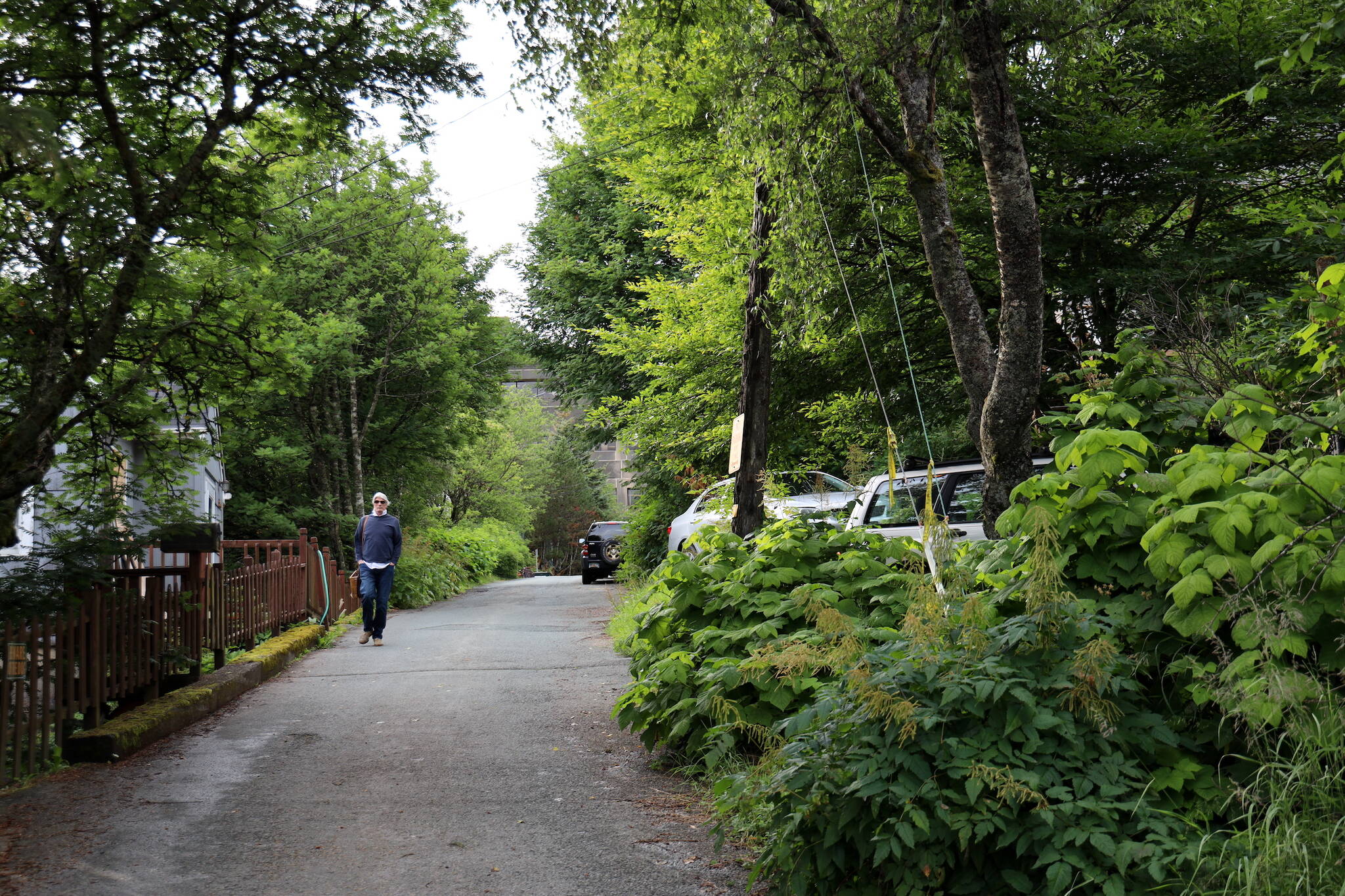The fate of Telephone Hill, considered a historic part of downtown Juneau, is up in the air and the City and Borough of Juneau want residents to help decide what to do with the rare 2.5 acres of developable land in the heart of downtown.
“It is our single biggest opportunity in a generation to do something in downtown Juneau,” said City Manager Rorie Watt in an interview Wednesday.
Together, the city and First Forty Feet, a design agency, are set to host a meeting next Wednesday evening on July 26 at the Juneau Arts & Culture Center to field community input on what to do with Telephone Hill and help inform potential redevelopment options to present to the Assembly. The area has been a hot topic in Juneau, with plenty of controversy and uncertainty.
About 15 people currently reside on the downtown hillside — nicknamed Telephone Hill after a telephone company called it home in the early 1900s — but don’t own the homes they live in; rather people have been renting them from the state for nearly four decades.
Back in 1984, the state bought the property for $4.6 million with the idea to redevelop the land to develop a new Capitol building.
That never happened.
Instead, the land sat in limbo leaving the people living on the property in a state of unease and uncertainty about what the future might hold for the land.
Just this March, however, the state transferred the ownership of the land to the city following a bill in June 2022 that was signed into law and included an amendment — written by Juneau Sen. Jesse Kiehl, a Democrat. The bill essentially handed over the property to the city to decide how the land will be used, as it was determined it was underutilized in its current state.
Now, a few months after the land was transferred, what will happen to the land and the houses remains uncertain, said Nick Druyvestein, project manager for the redevelopment master plan. That’s what the meeting next Wednesday is hoping to gauge from residents.
He said nothing is off the table for what could happen to the land — including nothing at all.
“That is part of what this whole study is trying to figure out — it’s determining what is the optimal use for the land, and considering the public’s values and needs,” he said. “As far as what I expect to hear or what I’ve already heard from members of the public, affordable housing is definitely up there. Preservation and conservation of what’s out there, especially the historical relevance of the area, that’s also on the table.”
Druyvestein said the study is currently underway, and the research and the public process are expected to be completed in about six months. After that, the potential options will then be presented to the Assembly for decision-making.
According to Watt, it’s going to take a while before those decisions are made. How long? He couldn’t say.
“It’s not like we cook up a scheme in the middle of the night and implement it the next day. We like our public meetings and we take testimonies — and I just can’t imagine that we’re gonna be moving at the speed of light,” he said.
Watt said he thinks there has been a disproportion between the concerns expressed by residents, and what the rest of the community actually think is best for land and downtown.
“We have heard from people who live up there who want to stay and we get it, but at the end of the day it’s about two and a half acres of city property, and it’s that high-density zoning,” he said. “There are about 15 people that live up there, but there are hundreds and hundreds of people in Juneau struggling with housing, and I think it’s our duty to work on that issue.”
Roald Simonson, a longtime resident of Juneau’s Telephone Hill, said Wednesday that he planned to attend the meeting, noting he still plans to stay at his residence as long as he can. He said he hopes that the city “doesn’t make us leave until we have to.”
As for what he’d like to see happen to the land, he said he couldn’t say for certain, but said he hopes whatever happens that it is meaningful to the community.
Know & Go
What: Public open house for the Telephone Hill Redevelopment Study
Where: Juneau Arts & Culture Center
When: 5-7 p.m., Wednesday, July 26.
• Contact reporter Clarise Larson at clarise.larson@juneauempire.com or (651) 528-1807.

